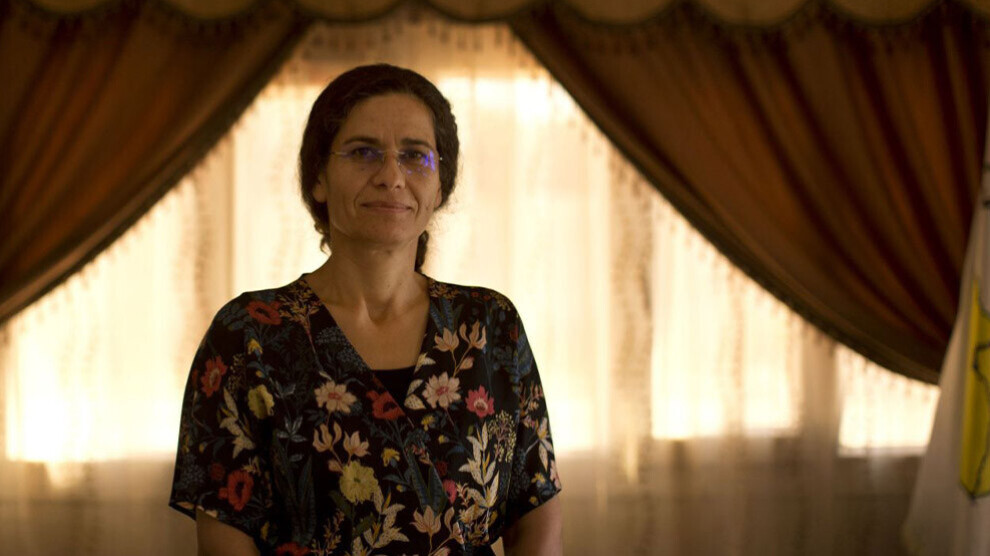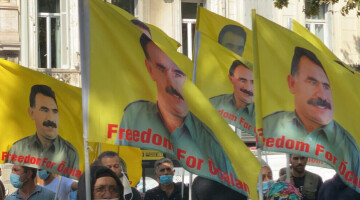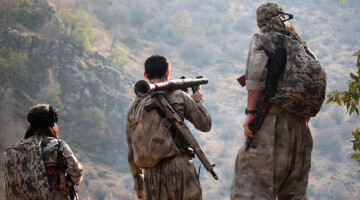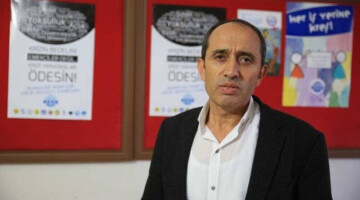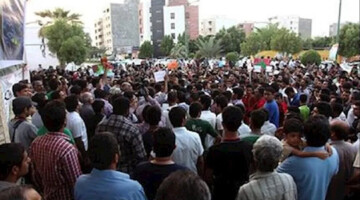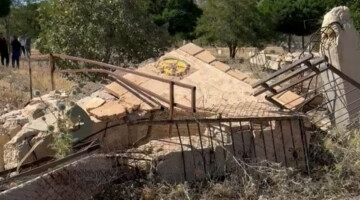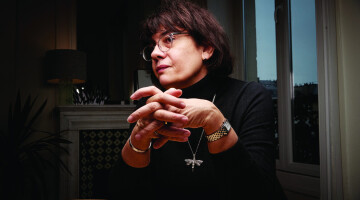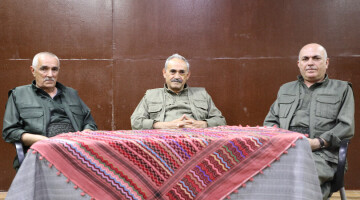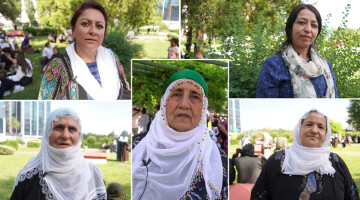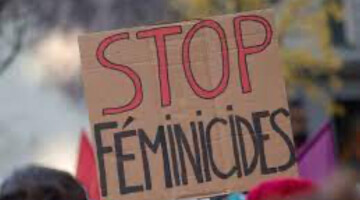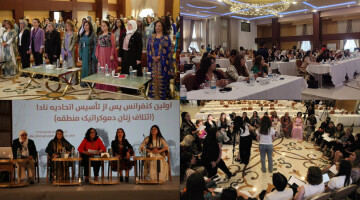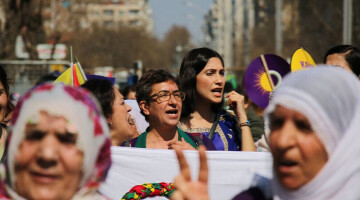The Kurdish Women’s Relations Office (REPAK) spoke to Ilham Ehmed, Co-President of the Executive Committee of the Syrian Democratic Council (MSD) about the much discussed idea of "feminist politics".
The times we live in show that the world is facing a systemic crisis. What are the foundations of this crisis? On what basis can we claim that the dominant system is in a crisis?
All the wars currently being waged in our world are a direct result of the crisis of the global system. After the Cold War, the world was once again divided and conquered. It was rearranged into a unipolar order with the United States of America taking the leading role. But as a result of American policies, new political vacuums emerged. The advancement of technology and the global world system gave way to other countries to grow their economies and challenge the unipolar world order. The competition between China and the US has a big impact on the whole world. Most of all, it impacts the Middle East because this region is the most taken advantage of - a battlefield for both sides. The sides involved in their competitions are waging their wars here on this battlefield. The climate crisis is constantly discussed and many international conferences are held, but every meeting brings new problems instead of a solution. That’s because the capitalist system always creates new disasters under the guise of solutions. The global economy is in crisis, there is an ecological crisis, and ever- new illnesses arise. At the same time, there are those searching for a new political system, as the old power blocks are undergoing changes. NATO is currently going through a challenging time. This is all a result of the crisis of the international system. By necessity, the system is changing - it will either be reformed or it will be destroyed. Until then, the system will continue to bring more destruction. Aside from the Middle East, Europe, Russia, Britain, and the US are all in the midst of a disaster.
What are the responsibilities of political institutions in the current crisis in the world?
To solve problems properly, every society and every territory must be able and allowed to solve its own problems according to its own needs. The dominant system cannot invent solutions and force them upon society.
What is the political relationship between the nation-state system, authoritarianism, and patriarchy? How can we understand this relationship?
The state takes upon itself the role of the ‘patriarch’ of society, and thereby represses all attempts at communal solutions. The state system and the patriarchal system are one and the same thing. Women’s role is absent in this system. The state takes all opportunities for life and thought away from women and renders itself the owner of society. It sacrifices everything for the existence of its own authority, and thus, society and people are left without a will, they are removed from the means of self-determination. Those with leadership roles inside the state, those who control society’s way of thinking, and the women who operate inside the state system work for the preservation of that system. Until now, no woman who has become a leader within the state system has distinguished herself from the system itself. This is one side of the problem and an important issue for women’s organizing.
Recently, terms like ‘feminist foreign policy’ or even ‘feminist NATO’ have been used frequently. Does a woman’s involvement in politics automatically make her politics ‘feminist’? Do you think that political approaches at the level of the nation-state can be feminist?
‘Feminist NATO’ is a strange phrase. It is well-known that NATO is a military structure, connected to the international system. Its goals are very clear. Its main concerns are weapons and war. If women’s presence in NATO structures actually changes the institution’s approach in a way that encourages peace and ends war, this would be a very important development. But in reality, women become a tool in the hands of the system to the point that the dominant system’s political goals are now accomplished by women. An institution contained inside the system cannot become feminist. Women inside NATO ought to protect women and society from war, but this is not happening. As a result, they simply become a political tool. There is a great danger now for women. There are many new opportunities for women in the current political order. In large numbers, women play important roles in decision-making processes. But unfortunately, it is clear that the system is simply using these women, not liberating them. In Turkey, many women help incite the flames of war. In Finland, half of the government consists of women, but they surrender Kurds to Turkey and operate in line with the interests of the dominant system. In Germany, the Chancellor was a woman, but politically, there was no difference between her and a man. She always allied herself with Erdogan and offered no changes to the situation of the oppressed. In Sweden, a woman was Foreign Minister, who put no pressure on the Turkish state, signed an agreement against the laws of her own country, and ignored the rights of Kurds, sacrificing them to the fascist Turkish state. What I am trying to say is that while it is a historic step that women have taken their place at the centers of decision-making, women’s decision-making must have principles and must be based on women’s political will. This is crucial. The culture and awareness of women’s work and participation is important.
In your view, what are the particular characteristics of feminist politics?
Feminist politics should not only be for the protection of women, but also for the protection of society. It should be ecological. A balance must be found between society and nature. Feminist politics should stand against war. It should create equality between the genders.
In Rojava, or North and East Syria, you are trying to develop a feminine perspective on politics. How can this be achieved in a practical sense? What does this contribute to democracy, freedom, and peace?
In all arenas, women organize themselves autonomously. On all topics, women develop their autonomous views and express their political perspectives. In a collaborative fashion, they emerge as equal participants of society. They struggle and organize on all issues based on political and ethical principles of society. Obstacles and shortcomings arise frequently, but these are addressed at special gatherings and conferences. Autonomous women’s organizing guarantees that issues of specific concern for women will be protected, as will women’s influence on politics more generally.
What is your call for women politicians of the world?
If women are able to obtain leading positions today, this is a result of many great women’s struggles. Women have created and seized opportunities to play a strong role in the organization of life. Women must not lose these opportunities. They must be at the heart of all decision-making processes with their own voices and approaches. It is indeed possible to change the world and achieve gender equality. Keep in mind the butterfly effect – even small actions can open the door to new possibilities.

